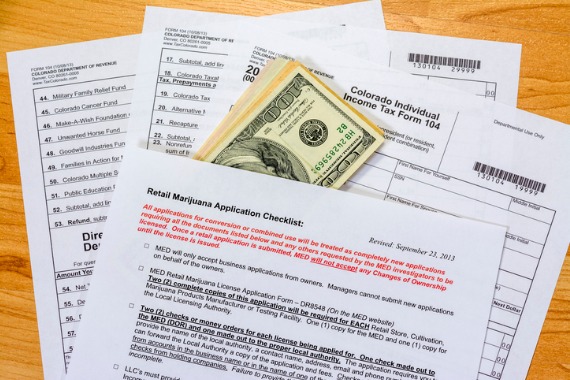Cannabis Manufacturing in the News
On February 22, 2022, the governor of New York, Kathy Hochul, signed a cannabis conditional cultivation bill. Now, cannabis manufacturers and farmers in New York have two reasons to celebrate, since this bill:
- Fast tracks the adult-use cannabis program
- Puts the New York cannabis farmers first because they are leading with cultivation licenses for the program
The bill also ensures inclusion, equity, and environmental sustainability within cannabis manufacturing. Still, every farmer that rallies for this license must meet specific requirements, which include:
- Must use cultivation practices that are safe, sustainable, and environmentally friendly
- Must be in a labor peace agreement with a recognized labor organization
- Must participate in a program for social equity mentorship
New York might be keeping its promise to introduce economic growth and opportunity to its residents, but other states have also implemented initiatives to attract cannabis manufacturers.
See how Cannabis Manufacturers can Simplify Compliance
Direct-To-Consumer Sales Platform In California
California has put forth many regulations in the adult-use marketplace sending blows to small farmers operating in the region. One such regulation is the ban on direct-to-consumer sales. In response, and as a survival tactic, the members of the Mendocino Cannabis Alliance launched an online sales and delivery platform on March 7 known as MendocinoCannabis.Shop to allow farmers in California to sell small-batch cannabis products to residents in Butte and Sacramento County. As much as 90% of the returns, after taxes, from the platform are given back to the farmer. However, only farmers who are members of the Mendocino Cannabis Alliance can use the platform.
The Mendocino Cannabis Alliance is a trade association that offers small but legal cannabis operators guidance on navigating the regulations and thriving amidst the cannabis wholesale marketplace.
Thriving Ohio
According to Crain’s Cleveland Business, the dispensaries in Ohio sold marijuana worth more than $381 million in 2021. This was a 72% increase from 2020, making a total of $690 million in medical marijuana sales since Ohio opened the cannabis market in January 2019.
Currently, one medical cannabis flower is selling at slightly less than $10 per gram on average. The state has 57 dispensaries, a number that cannabis regulators consider inadequate to meet the demands of the patient pool in the state – 130,641 patients.
This demand comes from the recommendation given to patients in the state who have one of the 25 qualifying conditions, one of which is chronic pain. As a result, 73 retail licenses are being processed for issuance to new retailers.
More insight: Which cannabis software is right for your business?
Delaware Legalization Bill
While states like New York have passed the adult-use marijuana legislation bill, the bill has been defeated in the House in Delaware. The body voted in favor of bills 23 to 14 on March 10 2022. A three-fifth majority was needed for the bill to pass, which is 25 votes.
According to the Associated Press, passing the bill would have imposed a new tax in the state. 15% tax on retail sales. The state would also oversee the manufacturing and distribution industry. This is why a significant portion of the body was required to pass the bill.
Among the voters, there were no Republicans in favor of the bill. Two Democrats were among the four lawmakers that abstained from the vote. If the bill had passed, its focus would have been small businesses, social equity, and licensing for:
- 30 retailers, 15 of whom would be equity applicants
- 5 testing labs with 2 social equity applicants
- 30 product manufacturers, 10 of whom would have been social equity applicants
- 60 cultivators with 20 social applicants
Training Cannabis Professionals
As more states start to launch the medical and adult cannabis use markets, there has been a complementary need for trained professionals in the industry. As such, universities and colleges are now working on meeting those demands by training graduates to become skilled workers in the cannabis industry.
As a result, cannabis companies across the nation can turn to these institutions for employees, and the institutions can connect graduates to potential employers. This practice is expected to generate between 425 thousand and 520 thousand full-time jobs in the United States.
The number is expected to continue growing within the years as the cannabis industry continues to expand. Additionally, jobs in the compliance industry are known to pay employees well, a factor that is causing individuals to leave their current working positions and join the cannabis workforce.
For instance, a bachelor’s degree in the cannabis market pays better than a starting faculty member in a university who has a Ph.D. So, some of the courses and universities training cannabis professionals include:
- Bachelor of Science in cannabis biology and chemistry from the Colorado State University, Pueblo, Colorado
- Associate degree in cannabis Science/Bachelor of Science in cannabis chemistry from the Lake Superior State University, Sault Ste. Marie, Michigan
- Certificate in cannabis education from the University of Nevada, Reno, Nevada
- Certificates in extraction and manufacturing, budtending, business, and horticulture from the Oaksterdam University, Oakland, California
Bottom Line
The Cannabis world is expanding, and businesses in different states are looking for opportunities to become leaders.
FAQs
What do these trending news stories do we find most encouraging for Cannabis Manufacturers?
Many states are focusing on the opportunities the medical and adult-use legislation bill is bringing to the cannabis marketplace, in general.
Does this mean that the cannabis industry is doing well?
Yes. In fact, global cannabis sales are expected to reach $33.6 billion in 2025. The legal cannabis industry also accounts for at least 321 thousand full-time jobs across 37 states, especially because of the medical and adult-use markets.
What is the biggest challenge for the cannabis industry?
One of the biggest challenges for the cannabis market is being in an ever-changing landscape, which means the entire industry has no standardization of laws and regulations concerning growth and distribution between US states and global countries.






